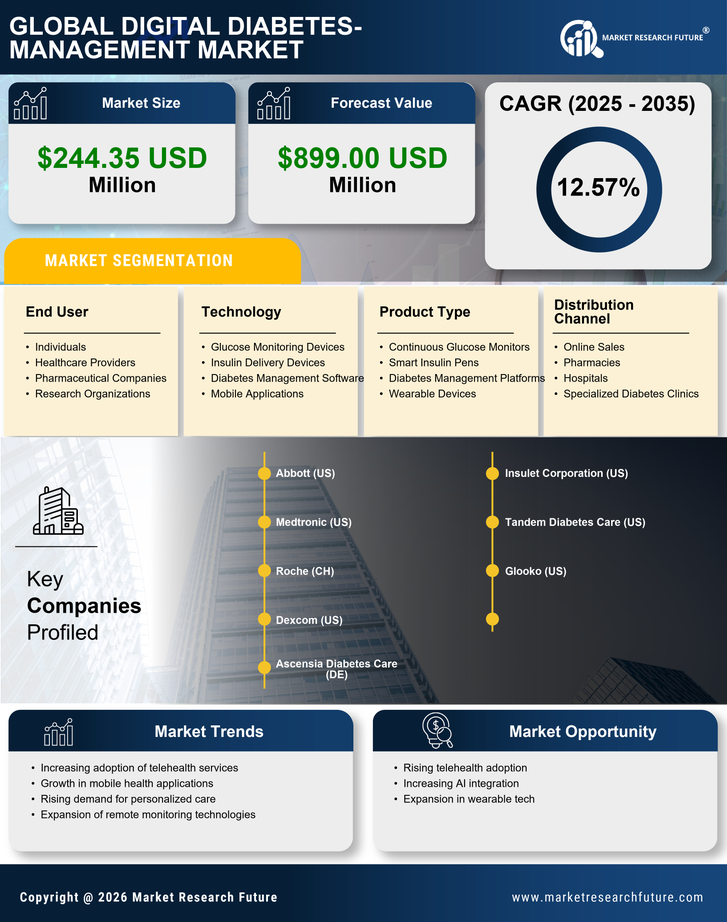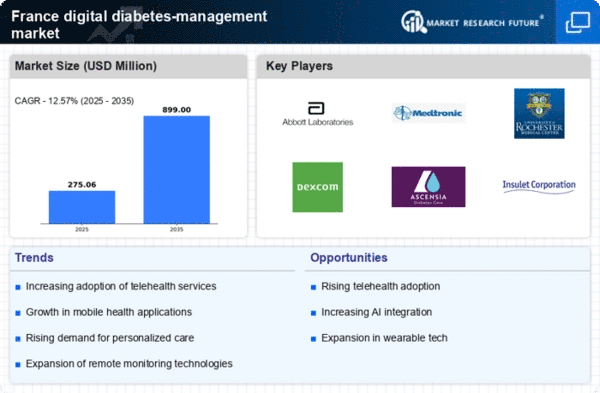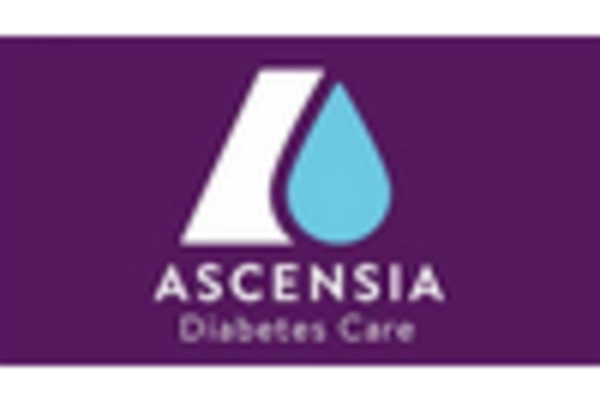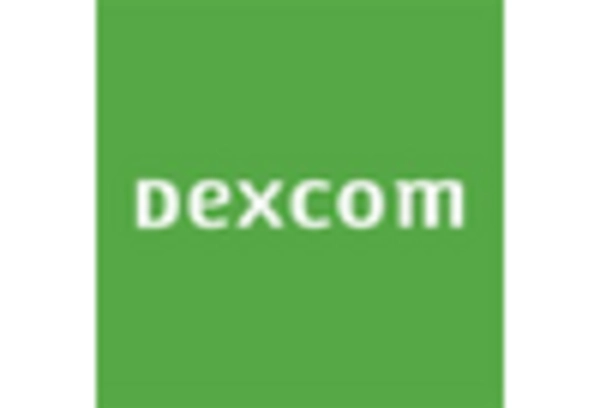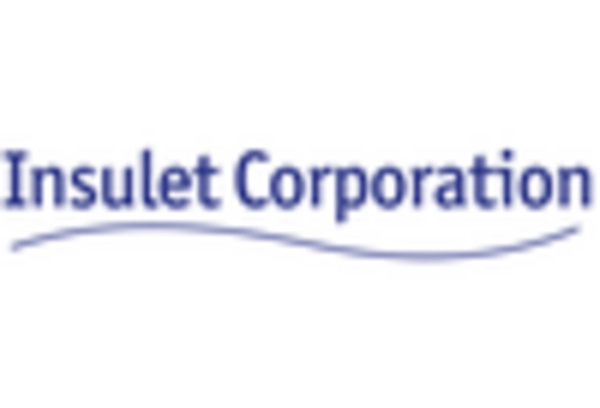Increasing Prevalence of Diabetes
The rising incidence of diabetes in France is a primary driver for the digital diabetes-management market. According to recent health statistics, approximately 3.5 million individuals in France are diagnosed with diabetes, with projections indicating a potential increase of 1 million cases by 2030. This growing patient population necessitates innovative management solutions, leading to a surge in demand for digital tools that facilitate monitoring and treatment. The digital diabetes-management market is positioned to expand as healthcare providers and patients seek effective ways to manage this chronic condition. Furthermore, the French government has been actively promoting digital health initiatives, which may further bolster the adoption of digital solutions in diabetes care.
Government Initiatives and Funding
The French government has been increasingly supportive of digital health initiatives, which significantly impacts the digital diabetes-management market. Various programs and funding opportunities have been established to encourage the development and implementation of digital health technologies. For instance, the French Ministry of Health has allocated substantial resources to promote telemedicine and digital health solutions, aiming to enhance patient care and reduce healthcare costs. This financial backing not only stimulates innovation but also encourages healthcare providers to adopt digital diabetes-management tools. As a result, the market is likely to witness accelerated growth, with an estimated increase in investment in digital health technologies projected to reach €1 billion by 2027.
Consumer Demand for Personalized Care
There is a notable shift in consumer expectations towards personalized healthcare solutions, which is driving the digital diabetes-management market. Patients are increasingly seeking tailored management plans that cater to their specific needs, preferences, and lifestyles. Digital tools, such as mobile applications and online platforms, offer the flexibility and customization that patients desire. This trend is reflected in market data, indicating that over 60% of diabetes patients in France express a preference for digital solutions that provide personalized insights and recommendations. Consequently, companies operating in the digital diabetes-management market are likely to focus on developing user-centric products that enhance patient engagement and adherence to treatment.
Rising Awareness of Diabetes Management
There is an increasing awareness of the importance of effective diabetes management among the French population, which is positively impacting the digital diabetes-management market. Educational campaigns and community programs have been instrumental in informing patients about the benefits of digital tools for managing their condition. As awareness grows, more individuals are likely to seek out digital solutions that facilitate better monitoring and control of their diabetes. Recent surveys indicate that nearly 70% of diabetes patients in France are aware of digital management options, suggesting a strong market potential. This heightened awareness may lead to increased adoption rates of digital diabetes-management tools, further driving market growth.
Technological Advancements in Health Monitoring
Technological innovations in health monitoring devices are significantly influencing the digital diabetes-management market. The advent of advanced glucose monitoring systems, including continuous glucose monitors (CGMs) and smart insulin pens, has transformed diabetes management. These devices enable real-time data collection and analysis, allowing patients and healthcare providers to make informed decisions regarding treatment. In France, the adoption of such technologies is on the rise, with market reports suggesting a growth rate of approximately 15% annually for digital health devices. This trend indicates a strong potential for the digital diabetes-management market to expand as more patients embrace these innovative solutions for better health outcomes.
